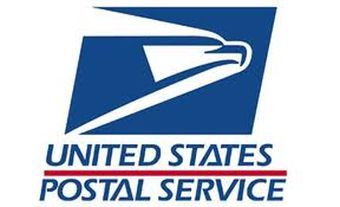With tax reform now in the rear view mirror on President Donald Trump’s list of priorities, it is clear now that he has another mishandled federal issue in his sights – the U.S. Postal Service. In a tweet posted just before the New Year, the President asks why the USPS is, “charging Amazon and others so little to deliver packages, making Amazon richer and Post Office dumber and poorer?”
This consternation refers to an analysis conducted by CitiGroup, which found that Amazon deliveries received an astounding average subsidy of $1.46 per package. Multiply this giveaway by hundreds of millions of packages that are captured by the secretive deal (known as a Negotiated Service Agreement) and it appears that USPS’ package losses surely are tremendous.
Even worse, Amazon may also be causing the integrity of USPS to deteriorate. In fact, reports from California, Utah and Georgia indicate that the Postal Service has been falsifying Amazon package deliveries.
These cases represent actual systemic problems where staff say they are given direct orders to lie about package drop-offs in order to create an illusion that USPS is meeting the standards that were promised for Amazon.
Putting a greater on focus on package deliveries has come a significantly high cost for the Postal Service. For perspective, as the USPS has increased its parcel quantity, the agency’s controllable costs have risen from $66 billion in 2014 to $71.6 billion projected for 2018. This kind of escalation proves greatly challenging as Postal leaders provide below-market prices just to keep retailers from abandoning USPS service.
In order to compensate for this financial quandary, the Postal Service has numerous ill-conceived mechanisms in place. Primarily, individual postal customers, smaller retailers and e-tailers, and other domestic businesses shipping items are forced to pay higher prices since they cannot access the same generous rates that are available to Amazon.
Furthermore, the Postal Service has willingly accepted an unbalanced international pricing structure. This deal written by the Universal Postal Union (essentially the UN for postal issues) has kept rates exceedingly low for foreign merchants sending items to the United States. If the President isn’t pleased with Amazon getting deals from the Postal Service, surely he cannot be pleased about Chinese shippers getting lower prices than Americans businesses to ship the same size items thousands of miles further.
Lastly, the Postal Service is seeking to balance out its finances by forcing more money out of stamped letters, its most common product. The USPS will do this thanks to its regulator (The Postal Regulatory Commission) which is now repealing much of nation’s sensible mail pricing structures. Lawmakers have relied heavily these restraints to keep the USPS government-granted monopoly from bilking millions of ordinary customers each day.
To put the existing price system in perspective, the Postal Service already generates an average of $1.25 in profit for every First-Class and Standard Mail letter. Thus, it is puzzling why federal regulators would allow the Postal Service raise price well beyond the rate of inflation.
If the USPS really wanted to rationalize its finances the agency should address staggering losses driven by Standard Mail Flats and Parcels. In 2016 alone, the USPS suffered a loss $632 million as a direct result of making 6.3 billion of these deliveries.
With these kinds of deficits, the approach of Postmaster General Megan Brennan is greatly disconcerting. Referring to USPS’ operations, she maintains we “are proud of our achievements in significantly growing our package business.”
As Postal management maintains baffling satisfaction with losses, the nation’s taxpayers should now have deep concerns. Specifically, USPS is dangerously spiraling towards a potential bailout by the federal government to salvage the agency that has been encumbered by unfunded liabilities totaling more than $121 billion.
This laundry list of USPS lapses in financial management have clearly produced inexcusable results for the nation’s consumers and businesses. In the New Year, lawmakers and regulators must demand greatly needed management changes at the U.S. Postal Service.
